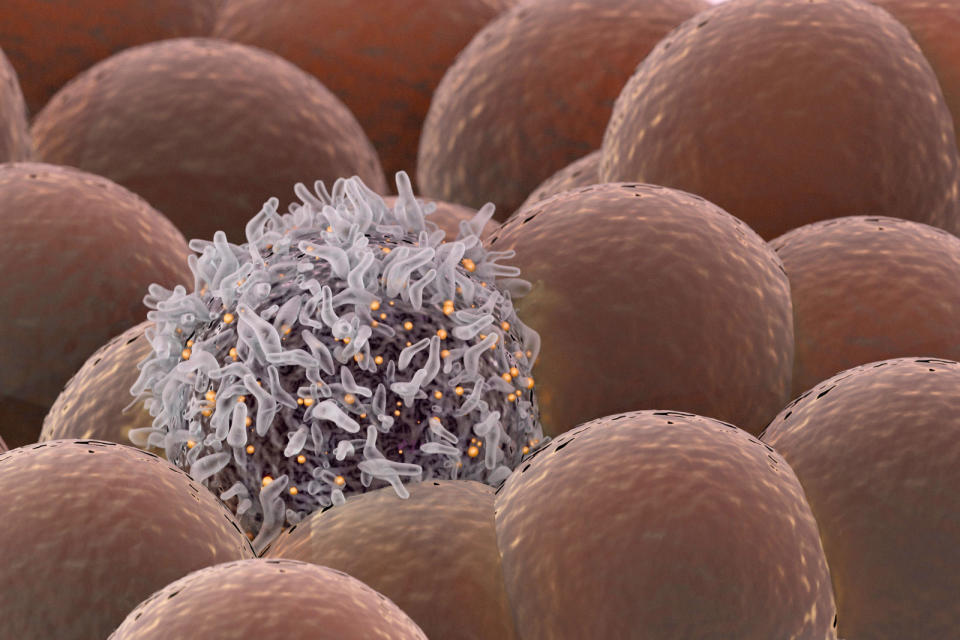FDA approves a more 'personalized' cancer drug
The medicine treats cancers with specific biomarkers.
Cancer treatments are becoming more personal. The Food and Drug Administration recently gave accelerated approval for Keytruda, a pre-existing drug from Merck, for use on patients diagnosed with solid tumors containing a specific biomarker. Rather than basing treatment on where the mutation originated, Keytruda will be used to treat microsatellite instability-high (MSI-H) cancers, those that are mismatch repair deficient (dMMR) and are otherwise not able to be surgically removed. These types of tumors affect how the DNA is repaired inside the cell.
The FDA says those are typically found in colorectal, endometrial and gastrointestinal cancers, but bladder, breast and thyroid cancers can have the markers as well. However, the Administration is quick to note that only five percent of patients with metastatic colorectal cancer have the markers.
How's it all work? Keytruda blocks a protein pathway in an effort to help the immune system to fight the cancer. Like many prescription drugs though, there are plenty of side-effects. Most concerning are colitis, hepatitis and pneumonitis -- inflammation of the colon, liver and lungs, respectively.
The FDA's priority review designation means that the regulatory body will fast-track its inquiry and hopefully "take action" within six months.
Unlike previous types of personal cancer treatment we've covered, this looks to be the most traditional. It doesn't use IBM's supercomputer to find the best care, nor does it involve injecting hydrogels into a patient, and seems the most traditional of anything we've seen thus far. That might explain why the FDA fast-tracked it, actually.



